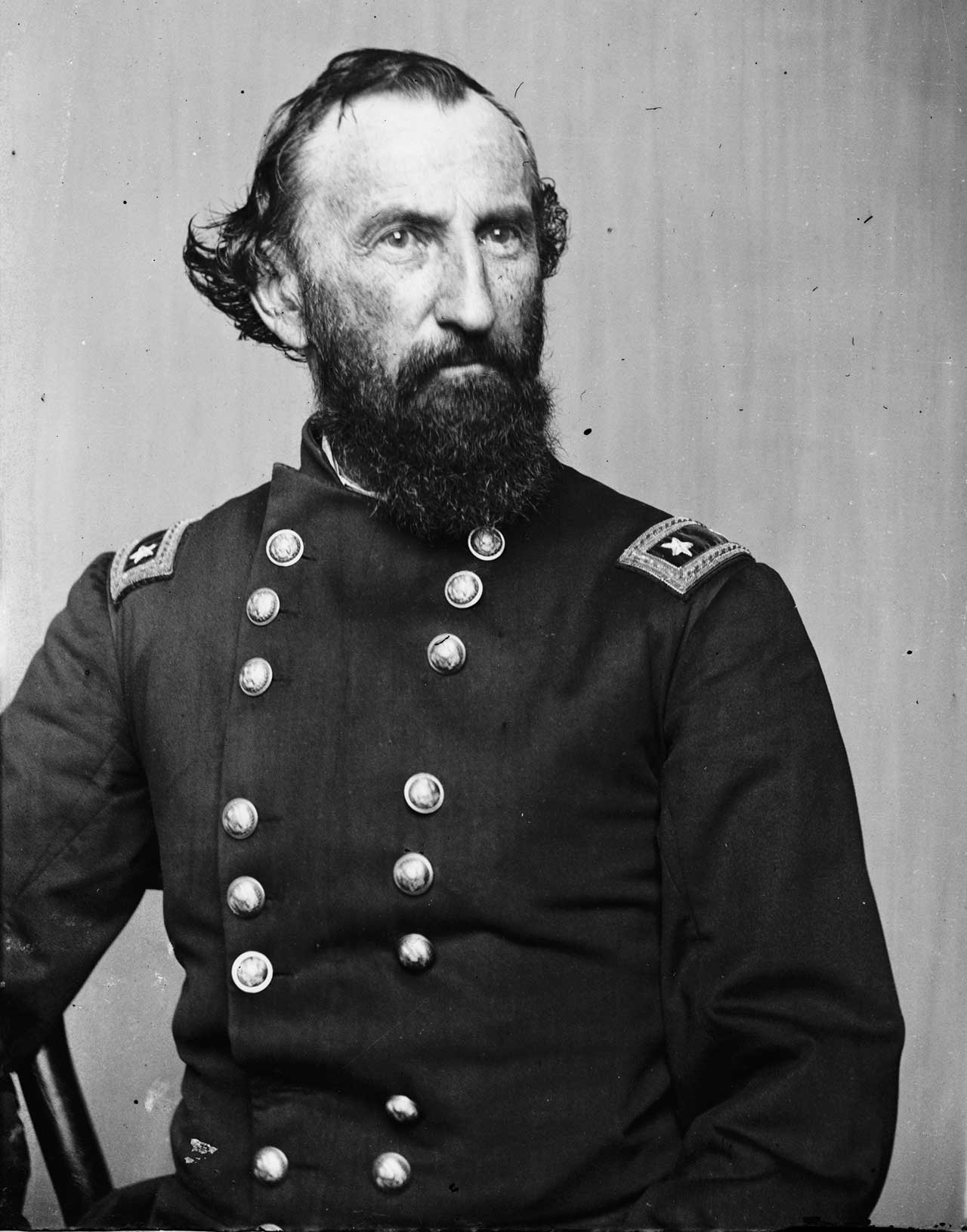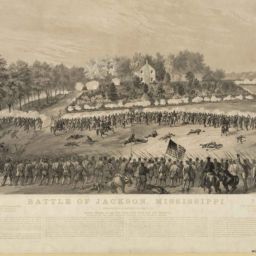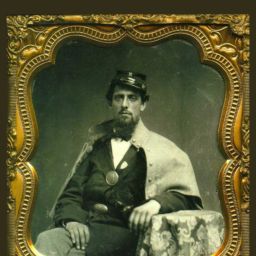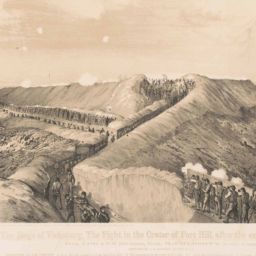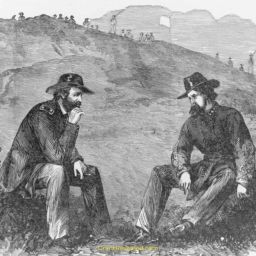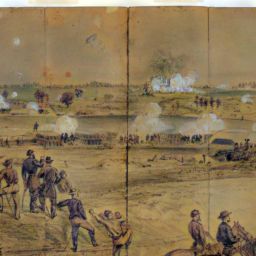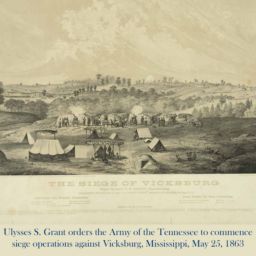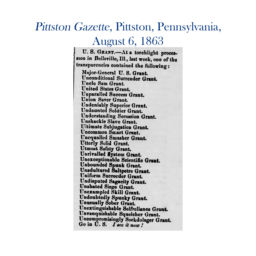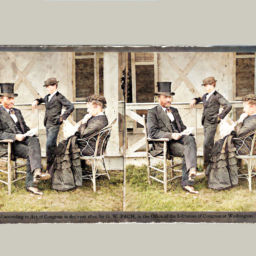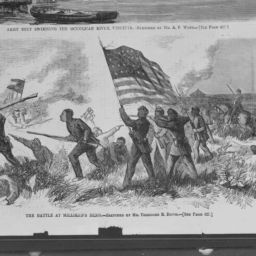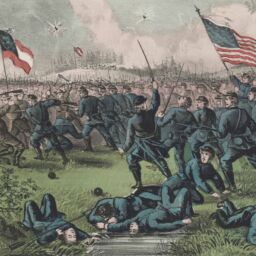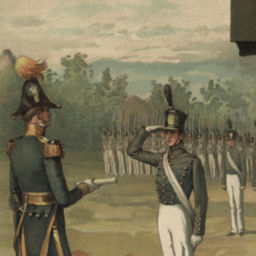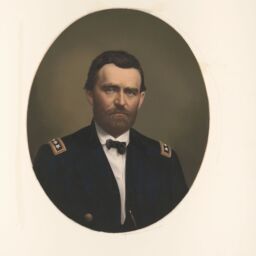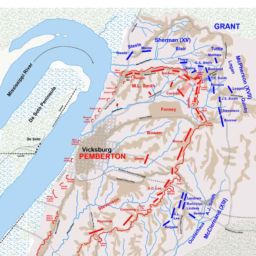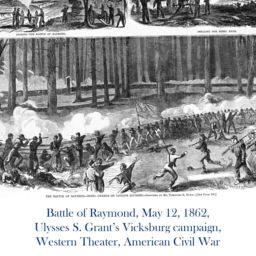
American Civil War, Western Theater, Vicksburg campaign. Ulysses S. Grant’s May 19 and May 22 assaults on Vicksburg both failed, the 22nd’s especially badly so. After the May 22 battle, roughly 3,200 Union soldiers were counted as killed, wounded, or missing in action.
Dr. Brooks D. Simpson in Ulysses S. Grant: Triumph over Adversity points out that Grant had no one to blame but himself, but also that, perhaps surprisingly, what Grant in part had himself to blame for was listening to his friend and valued subordinate colleague General William Tecumseh Sherman.
Text from the Ulysses S. Grant National Historic Site (National Parks Service) explains that during the May 22:
[Major] General [John A. McClernand, commander of the XIII Corps,] was able to lead his men into the Railroad Redoubt, which guarded the main tracks leading into Vicksburg. McClernand sent a dispatch to Grant requesting reinforcements, but Grant was reluctant at first because he believed that McClernand was exaggerating just how successful the [breach] had been. General Sherman convinced Grant to send more soldiers.
But Grant had been right. McClernand irresponsibly overstated his successes. The truth, as Grant suspected was the case but from his vantage point could not with 100 percent certainty ascertain, was that the requested reinforcements would not bring victory. Yet, Grant unfortunately gave McClernand the benefit of the doubt, despite errors McClernand had made in previous engagements. The reinforcements suffered high casualty rates in assaults that Grant should not have supported. Grant biographer Ron Chernow damns McClernand’s dispatch as having been “misleading,” and quotes Chicago Tribune reporter Sylvanus Cadwallader who wrote an eyewitness account:
“[I] shall never forget the fearful burst of indignation from [Major John A.] Rawlins[, an especially trusted assistant to Grant], and the grim glowering look of disappointment and disgust which settled down on Grant’s usually placid countenance, when he was convinced of McClernand’s duplicity, and realized its cost in dead and wounded.” (269)
McClernand was a former congressman and a political appointee to his generalship. Over the course of the preceding several months, he had increasingly frustrated Grant, Rawlins, and other military officers with his poor performance, with the exception of his battlefield commandership at Shiloh, which was respectable, as his behind-the-scenes politicking, including a solo trip to see President Lincoln in Washington, D.C. to ask for an independent command. Lincoln was grateful for pro-Union Democrats such as McClernand, and this fact granted some political protection to McClernand.
But McClernand’s role in the May 22 failure set Grant irreversibly on a course towards dismissing McClernand once another cause presented itself.
Simpson describes what followed:
Following the May 22, 1863, assault on Vicksburg, McClernand decided to write an order congratulating himself and his soldiers for carrying the main burden for the Unionists during the Vicksburg Campaign, but this time the order was published by the press, a violation of War Department rules and regulations. No order was to be placed in the newspapers unless it had been approved by the War Department. General Grant took this opportunity to rid himself of his work nemesis, and he relieved McClernand of his command.
Much more can be said and about the problems created for both the Union and Confederate armies by appointments made of civilians to military officer ranks for political reasons. But such appointments were in effect unavoidable given how both U.S. and rebel civilian and military leaders quickly came to realize at the beginning of the Civil War that victory would require raising armies far larger than what could be supplied by professional soldiers alone.
Sources:
Chernow, Ron. Grant. New York: Penguin Books, 2017. Kindle.
“General John A. McClernand: General Grant’s Work Nemesis.” National Park Service, Ulysses S Grant National Historic Site. (Website.) https://www.nps.gov/articles/000/general-john-a-mcclernand-general-grant-s-work-nemesis.htm. Accessed May 23, 2022.
Simpson, Brooks. Ulysses S. Grant: Triumph Over Adversity, 1822-1865. United States: Zenith Press, 2014. Kindle.
Image: Major General [of Volunteers] John A. McClernand (1812–1900), public domain image via Seven Score and Ten (defunct blog) Flickr gallery, https://www.flickr.com/photos/agathman/6110427924.


